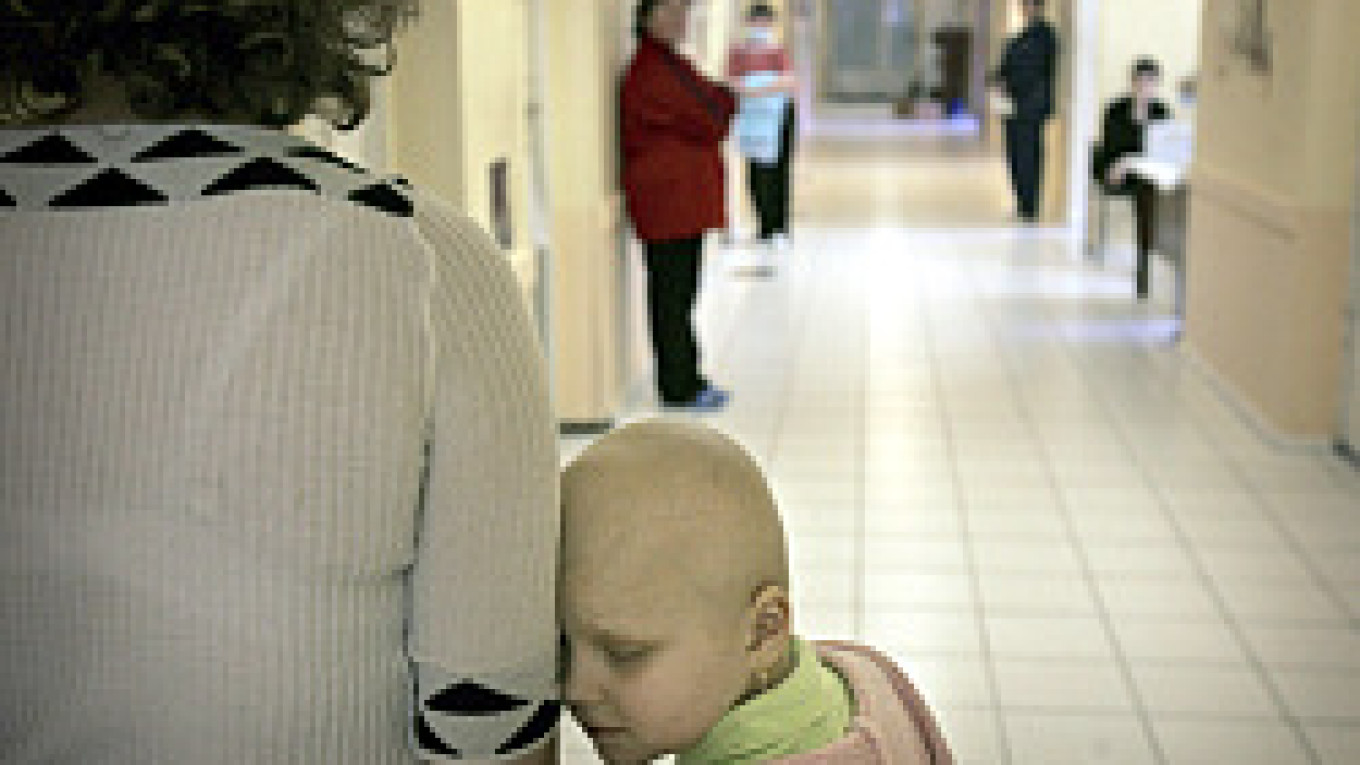The report's conclusion underlines the uncertainty that remains about the health effects of the world's worst nuclear accident as its 20th anniversary approaches.
A reactor at the Chernobyl nuclear power plant in Ukraine exploded on April 26, 1986, spewing high levels of radioactive fallout over much of Europe. The fallout was particularly severe in the northern reaches of Ukraine, western Russia and in much of Belarus.
Areas immediately around the now-inoperative plant remain off-limits, but other areas that got significant fallout are inhabited and health anxiety is common in those areas.
A report last year by the Chernobyl Forum, which comprises the United Nations' International Atomic Energy Agency and several other UN groups, said fewer than 50 deaths could be confirmed as being connected to Chernobyl and that the number of radiation-related deaths among the 600,000 people who participated in fighting the consequences of the accident would ultimately be around 4,000.
The increase in cancer deaths among the 5 million exposed to lower levels of radiation would be so low that it would be statistically difficult to identify, the report's authors said, but they estimated it could be around 5,000.
But Greenpeace, in a report that cited data from Russia, Belarus and Ukraine -- and extrapolated from those figures -- disagreed and suggested the Chernobyl Forum report was deliberately misleading.
"The nuclear industry is the most dangerous in the world, and they are definitely trying to minimize the results of the Chernobyl catastrophe," said Ivan Blokov of Greenpeace's Russia office.
"We have a report showing the incredible damage caused to humans. ... Nearly every system of the organism is damaged."
Many of the consequences of Chernobyl remain controversial and difficult to identify, particularly because of the deep economic depression and unhealthy lifestyles -- such as heavy drinking and smoking -- common in the region.
Vyacheslav Shestopalov of Ukraine's Academy of Sciences, however, cautioned against blaming everything on nonradiation factors.
"It is not only stress or a bad economic situation: There is also radiation," he said.
Volodymyr Bebeshko, a professor at the Ukrainian Center for Radiation Medicine, said that he participated in the UN's Chernobyl Forum but refused to endorse the findings.
"Quite honestly, it doesn't reflect reality," Bebeshko said. "They are very clearly trying to minimize the consequences."
Bebeshko said the studies had found increases in not only thyroid cancer, but also breast cancer in the wives of the so-called "liquidators" -- those who were asked to deal with the effects of the explosion -- and large increases in leukemia and other blood disorders.
Greenpeace said statistics from Belarus indicated there would be 270,000 cases of cancer attributable to Chernobyl radiation throughout the region and that 93,000 of those cases were likely to be fatal.
Greenpeace also cited a report by Veniamin Khudolei of the Center for Independent Environmental Assessment of the Russian Academy of Sciences that found sharply increased mortality in western Russia over the past 15 years, suggesting that the increase was due to Chernobyl radiation.
"On the basis of demographic data, during the last 15 years, 60,000 people have died additionally in Russia because of the Chernobyl accident, and estimates of the total death toll for Ukraine and Belarus could be another 140,000," Greenpeace's international office said in a statement.
Greenpeace also predicted that the radiation fallout from Chernobyl would cause hereditary diseases -- something the UN report said it had found no evidence of.
"In animals, we have seen very serious genetic consequences coming not only in the first generation but in further generations," Blokov said.
The report also finds that "radiation from the disaster has had a devastating effect on survivors" other than cancer cases -- "damaging immune and endocrine systems, leading to accelerated aging, cardiovascular and blood illnesses, psychological illnesses, chromosome aberrations and an increase of deformities in fetuses and children."
A Message from The Moscow Times:
Dear readers,
We are facing unprecedented challenges. Russia's Prosecutor General's Office has designated The Moscow Times as an "undesirable" organization, criminalizing our work and putting our staff at risk of prosecution. This follows our earlier unjust labeling as a "foreign agent."
These actions are direct attempts to silence independent journalism in Russia. The authorities claim our work "discredits the decisions of the Russian leadership." We see things differently: we strive to provide accurate, unbiased reporting on Russia.
We, the journalists of The Moscow Times, refuse to be silenced. But to continue our work, we need your help.
Your support, no matter how small, makes a world of difference. If you can, please support us monthly starting from just $2. It's quick to set up, and every contribution makes a significant impact.
By supporting The Moscow Times, you're defending open, independent journalism in the face of repression. Thank you for standing with us.
Remind me later.


